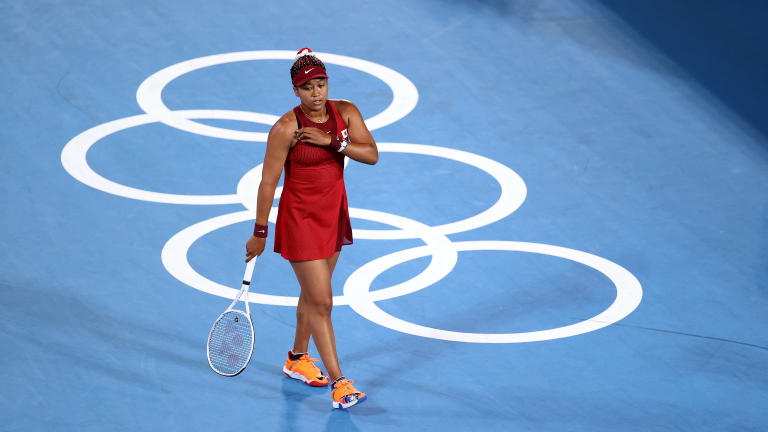Olympic Tournament
Naomi Osaka's inspirational beginning and impactful end in Tokyo shows how far tennis has come as an Olympic event
By Jul 27, 2021Olympic Tournament
Yannick Noah will captain France’s men's wheelchair tennis team at Paralympic Games
By Dec 14, 2023Olympic Tournament
Russians can qualify for Olympic spots in some sports, but that doesn’t mean they’ll be allowed in Paris
By Jul 24, 2023Olympic Tournament
IOC's Bach says key to Russian decision for Paris Olympics is athletes' respectful conduct
By Jul 18, 2023Olympic Tournament
IOC details advice to let Russian, Belarussian athletes to return
By Mar 28, 2023Olympic Tournament
IOC insists there were "no plans for a Russian or Belarusian delegation" at 2024 Paris Olympics
By Feb 08, 2023Olympic Tournament
Elina Svitolina calls for Russians and Belarusians to be banned from 2024 Olympics
By Feb 08, 2023Olympic Tournament
Can Novak Djokovic recover to bring home the calendar-year Grand Slam?
By Aug 02, 2021Olympic Tournament
With two medals in Tokyo, can Belinda Bencic set aside rollercoaster tendencies and become elite staple?
By Aug 02, 2021Olympic Tournament
In Tokyo, Zverev broke through Djokovic’s wall of invincibility, while Rublev and Pavlyuchenkova reminded us why they play the Olympic Games
By Aug 02, 2021Olympic Tournament
Naomi Osaka's inspirational beginning and impactful end in Tokyo shows how far tennis has come as an Olympic event
The Japanese star lost in the third round to Marketa Vondrousova, 6-1, 6-4.
Published Jul 27, 2021
Advertising
Advertising
Advertising

The impact of Naomi Osaka's presence in Tokyo, on and off the court, shows just how far tennis has come as an Olympic sport.
© Getty Images